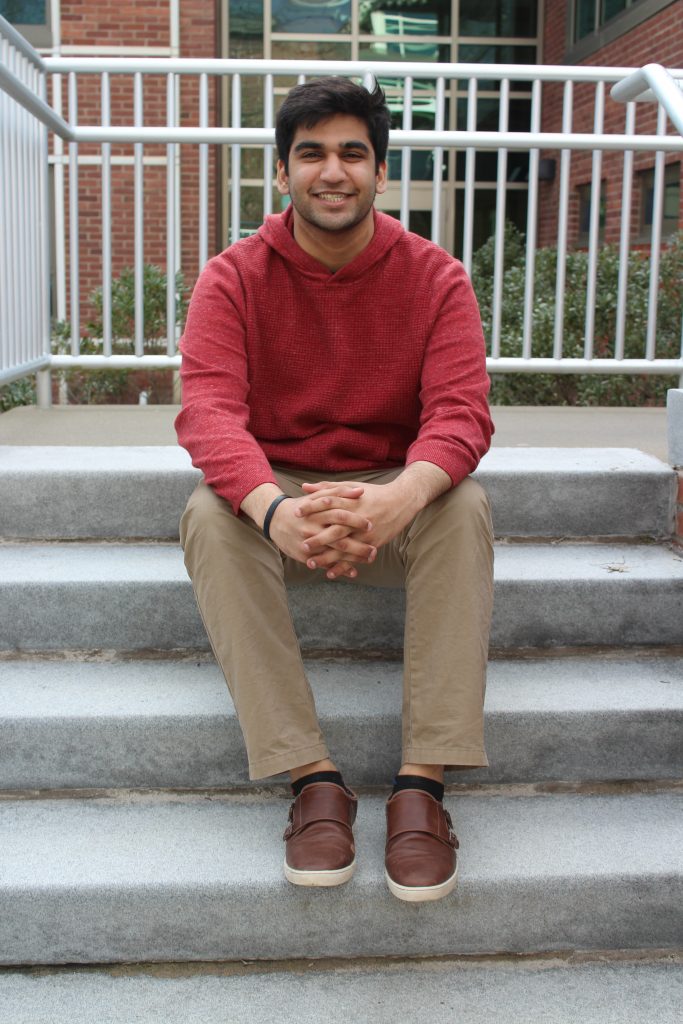
Satvik Sethi is a sophomore majoring in business administration with a concentration in leadership and consulting at Binghamton University. The native of India is also founder of Runaway, a platform dedicated to mental health advocacy. This semester, Sethi is involved with the Management Consultant Group, a BU student organization centered on training students for the consulting industry, and is the vice president of digital marketing for the Student Philanthropy Committee.
PRISM: What is Runaway, and what impact has it had on your life?
Satvik Sethi: Runaway is a social entrepreneurial venture to promote mental health awareness and help those in need of emotional support. We try to do as much as we can to work toward breaking the stigma that surrounds mental health. In terms of the impact that it has had on my life, it has definitely made me a lot more positive because working with some of the cases we have seen with Runaway, we are just reading up about different mental health cases and different aspects. I have learned to appreciate things around me more. So I think it has had a very nice impact on me. At the same time, I feel like a lot of students on campus now recognize me as the face of Runaway and so it’s always nice when people come up to me and want to talk about mental health and how they could help their friends.
P: How is the organization running so far and how did you develop this idea?
SS: We started with a team of six members, some from Binghamton and some from back home in India, all working voluntarily. This year, we are now a team of 17 students, again all student volunteers. We have dedicated teams for contact, marketing and communications. It has been going well. We recently hosted an event and 150 people showed up. Three years ago, I was up one night looking for quotes and poetry Instagrams and I accidentally found someone self-harming, and I was 16 at that time. I reached out to this person and said if you need someone to talk to I am there for you. It felt good to be able to give someone that space for them to be listened to, and over the past three years I have spoken to over 250 people like that. Just going online, finding them and talking to them. So last year, the Fleishman Center hosted an event called Idea Workshop, and at this point I was sort of dabbling with the idea of maybe scaling this because it was getting a lot of work to personally find people on social media. So I wanted to do something that was more sustainable, something that I could bring more people into to help me with. So I went to this Idea Workshop, so I said, “What if I make an app that lets users come online, talk to volunteers for free, anonymously?” and people really supported this idea. Since then I have been able to find people who like the idea, who like what we are doing and what we stand for, and join our team.
P: What has your experience been like, being an international student from India?
SS: Overall it’s been very welcoming. Initially, being an international student, I had a lot of the usual challenges with homesickness and grasping the new culture and new faces around me. I felt that I was able to make friends relatively easy early on and get connected to a lot of different resources. I have actually not been very familiar with the international student resources because I have just never felt the need for them. I feel like the School of Management and other opportunities on campus have been sufficient for me to sort of set base for me to strive to do something good for myself.
P: What advice do you have for students on dealing with mental health issues or helping others who may be suffering?
SS: One of the biggest things I tell people is, first, don’t help others unless you have helped yourself first. Anyone who is not in the best emotional state or mental state is most likely to not give the best advice to others on how to deal with their mental health. The first thing is take care of yourself, make time for yourself, do the things you like to do the most, enjoy the things around you, appreciate the things you have rather than being upset about the things you don’t have. Once you have done all of that, the biggest advice I could give to people is just to listen and observe because you know someone is going through something if you just observe keenly. Just asking someone how their day is going, telling them to have a good day, smiling at a person when you’re walking down a hallway — small things like those can make a huge difference.
PRISM has edited this interview for length and clarity.[ITALICS]


